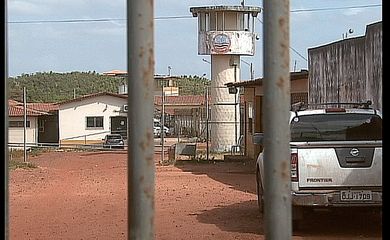Brazil's prison population has grown 5.37%


In Brazil, out of a total nearly 538,000 prisoners, 61.7% are blacks, which reflects a 18.4% higher imprisonment rate among this section of the population

Brazil's prison population has increased 5.37% between 2012 and 2013, a watchdog NGO reported Tuesday (Nov. 11). According to the Brazilian Forum on Public Security (FBSP in the Portuguese-language acronym), out of a total nearly 538,000 prisoners, 61.7% are blacks, which reflects a 18.4% higher imprisonment rate among this section of the population. Blacks and mulattoes are also exposed to higher rates of violent death, making up 68% of homicide victims in the country.
Law professor Oscar Vilhena of Fundação Getúlio Vargas says the data on black populations contains evidence of biased police action. “There is a socially shared racism which pervades even the [way] police [operates],” he said. Moreover, young people between 18 and 29 account for 54.8% of the prison population and 53.3% of homicide victims.
Another finding is that the total number of beds in Brazilian prisons has grown at a slower pace than the prison population growth, resulting in a shortage of 220,000 beds. Renato Lima of the FBSP cites a sluggish legal system among the factors leading to an aggravation of this situation. “We have a situation where 40% of prisoners are still awaiting trial,” he said. A majority of inmates (49%) have been charged with property crimes. Drug trafficking accounts for 26% of arrests made, whereas 12% are due to murder.
As an example of good practice in public security in the country, Lima notes experiences in Pernambuco, São Paulo, Minas Gerais, and Rio de Janeiro, where there were “synergies between the various police forces, wider use of information, improvements in intelligence systems, and a more active role of communities.” However, a discontinuance in public policies, which tend to change with successive administrations, poses a barrier to further advancing these efforts.
Bruno Paes Manso, a researcher at the University of São Paulo, pointed out that Brazil has “the world's fourth largest prison population. [But] most of the inmates are charged with lesser offences, like theft and drug trafficking, and in many cases are first-time offenders who eventually get mixed with [dangerous] people who committed various crimes,” he said. In his opinion, Brazilian prisons tend to provide a sort of headquarter for criminal organizations. “This system is only making crime all the more effective,” he criticized.
Manso believes that more efforts should be made in pursuing structural reforms that break with this blatantly ineffective model. One major step would be making the way police works more integrated, since “an officer out in the street would be in a better position to gather information than a police chief who is often withdrawn into a police station,” he pointed out.
Translated by Mayra Borges
Fonte: Brazil's prison population has grown 5.37%




